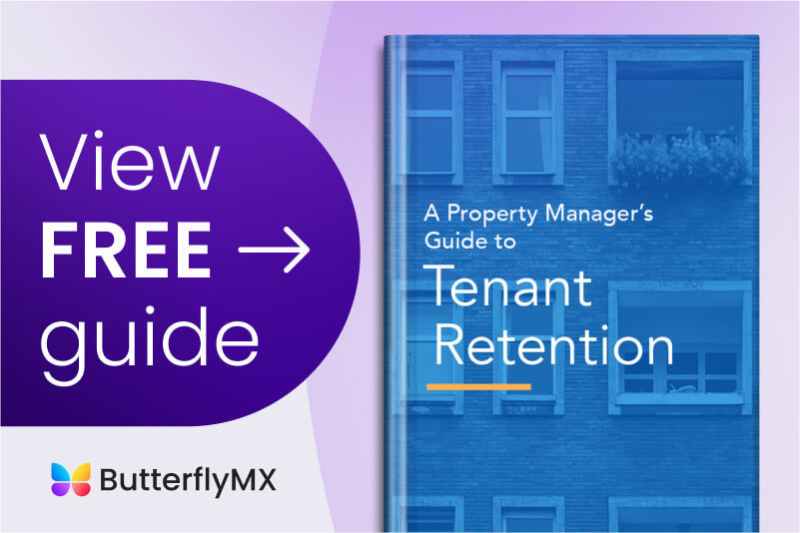Key takeaways
- Certified property managers have taken additional training and gained an official certification to set themselves apart from other managers.
- The benefits of attending property manager school include increasing your salary, proving your dedication to the field, and expanding your job network.
- If you want to advance your property management career, a real estate management certification is worth it.

You might wonder how to stand out from the other property management team members. How can you prove you’re ready for a promotion or more responsibilities? Obtaining a certification and becoming a certified property manager will help.
This post explains what a certified property manager is and its benefits. Then, we help you decide if a CPM certification is right for you. Most importantly, we’ll detail how you can become a certified property manager.
This post covers:
- What is a certified property manager?
- What are the benefits of becoming a certified property manager?
- Is a CPM certification worth it?
- How to become a certified property manager
What is a certified property manager?
A certified property manager (CPM) has taken the time to study for a certification, proving their knowledge and expertise in the property management field.
Employers value employees with proven expertise and training more than in every other field. If you’ve ever wondered how you can stand out – and command a higher salary – you might be interested in obtaining a property manager certification.
In one of these courses, you’ll be sure to learn information to help you become a more effective property manager. You might learn about team management strategies, accounting, budgeting, etc.
You can take a general property management certification. Or, if you’re interested in specializing in one type of property, you can seek out residential, commercial, or industrial training and become a certified commercial property manager.
How long does it take to complete CPM?
A CPM can take one to two years to complete, depending on where you get your certification.
There are ways to complete a CPM faster. If it’s an online course, you can complete multiple learning units in a day. Some CPMs also allow you to skip sections if you have prior experience or a college degree.
How much does it cost to become a certified property manager?
Depending on the certification, a property manager certification course might cost about $6,000 to $8,000.
Your costs might increase if you want to get involved with the certification’s parent organization because you’ll have to pay monthly dues.
What are the benefits of becoming a certified property manager?
Compared to non-certified property managers, certified managers have a few more benefits.
The benefits of property manager training include:
Learn some budgeting tips as a property manager:
1. Increasing your salary
Whether you’re interested in getting a raise from your existing employer or using your certification to ask for a higher salary, a certification is an important tool in your arsenal.
According to the Institute of Real Estate Management, the average salary for a non-certified property manager is around $50,000 — but a certified property manager’s salary almost doubles to approximately $120,000.
As far as negotiating to increase your salary, a certification can help in one of two ways. You may leverage your certification to get a promotion where you take on more responsibilities. On the other hand, you can also look into getting a new property management job with your new training.
2. Proving your dedication to the field
One thing property owners constantly struggle with is the turnover rate displayed in their industry compared to others. Nationally, there’s around a 22% turnover rate across every industry, but for property management, that number is around 33% to 36%.
Property owners might be hesitant to take on new staff members because of the higher risk of turnover. They might also be afraid to spend money on onboarding a staff member and giving them property-specific, specialized training—only for that worker to leave the industry abruptly.
But if you can show dedication by adding a property management certificate to your resume, you can ease those fears.
3. Expanding your job network
Getting a property manager certification can help you in ways that might surprise you.
You might meet classmates or network with your class instructor, who can refer you to new opportunities.
To make the most of any job opportunities that come with taking a class, you can look for in-person or virtual meetups and ensure that you’ve put your certification on your resume or your LinkedIn account.
Is a CPM certification worth it?
Yes, a CPM certification is worth it if you want to advance your career in property management.
The skills you’ll gain will make you an invaluable asset to any property management team. By drawing on your knowledge to improve workflows, eliminate inefficiencies, and provide better support to residents, you’ll help ensure higher resident retention —- and property owners will surely be grateful.
However, even if you choose not to pursue property management long-term, you never know when a skill you’ve learned in one of the courses will come in handy.
How to become a certified property manager
To become a certified property manager, you can find a certifying organization, take all of its courses, and then accept your certification.
Become a CPM by:
- Finding a certifying organization. Popular certifying organizations include the Institute of Real Estate Management, the Community Associations Institute, and the National Association of Residential Property Managers. During this step, ensure that you get the most value out of your certification by ensuring that the organization that you choose is widely recognized and has relevance in its field.
- Taking the course. Your course might be made of online courses or in-person sessions. All in all, finishing the certification might take anywhere from one to two years — but some certifications allow you to waive some courses if you come in with real-world experience or a college degree.
- Accepting your certification. Congrats on completing your course! After you’re certified, your organization might offer benefits like referrals or an alumni network. However, you may have to pay dues to gain access to those benefits, so do some more thinking before you get involved.







